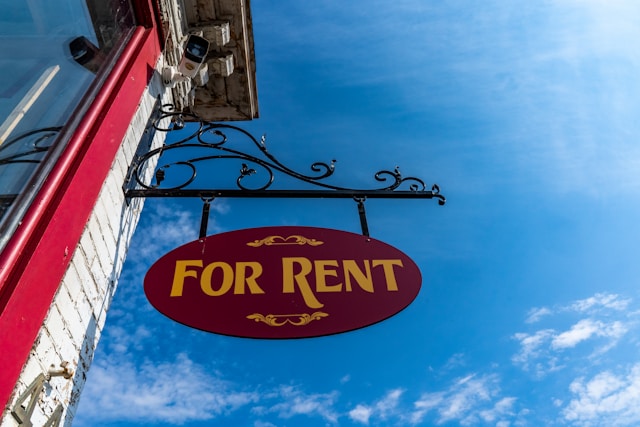Finding the perfect apartment to rent can often feel like navigating a maze of endless listings, each promising comfort and convenience but rarely meeting expectations. For anyone looking to rent a house, the stakes are even higher, as it involves not just securing a roof over your head but finding a place that truly feels like home. Moving in this month may seem daunting, but with the right approach and careful planning, the process can be both exciting and rewarding. Understanding your priorities and knowing how to navigate the housing market are key steps toward making a seamless transition.
The housing market today offers a vast array of options for prospective tenants. From modern high-rise apartments in bustling urban centers to quiet suburban homes tucked away in peaceful neighborhoods, the variety is staggering. This diversity means that individuals seeking to rent a house are no longer confined to limited choices. By setting clear expectations regarding location, budget, and amenities, anyone can find a residence that matches both their lifestyle and personal preferences. Moreover, being proactive about move-in timelines can ensure that you secure the best deals, even in competitive markets.
Apart from location and budget, timing is another critical factor to consider when looking to move in quickly. Many landlords prefer tenants who can commit to immediate occupancy, which can translate into favorable rental terms or waived fees. To maximize your chances of a smooth transition, it is essential to organize all necessary documents in advance, including proof of income, rental history, and identification. With preparation and research, finding an apartment that meets your needs and moving in within the month becomes not only feasible but entirely achievable.
Understanding the Rental Market
The dynamics of the rental market are complex and influenced by multiple factors, including supply, demand, and local economic conditions. People looking to rent a house must be aware of trends that affect availability and pricing. Urban areas typically experience higher competition, which can drive prices up and reduce the number of immediate move-in options. On the other hand, suburban or rural regions might offer more flexibility and lower rental costs, making them attractive alternatives for those willing to commute or trade convenience for space.
Market trends also fluctuate seasonally, with certain months seeing higher turnover rates in apartments and houses. Summer, for example, often brings a surge in listings due to academic calendars and professional relocations, creating both opportunities and challenges for prospective tenants. Understanding these patterns allows you to strategize your search more effectively, ensuring that when you choose to rent a house, you can secure a property that aligns with your timeline and expectations.
In addition to macroeconomic trends, local market conditions play a crucial role in determining rental options. Factors such as neighborhood development, infrastructure improvements, and community amenities can influence both the desirability and the cost of a property. By conducting thorough research and visiting potential neighborhoods, you can gain a clearer picture of what to expect when you decide to rent a house, avoiding surprises and making a more informed decision.
How to Find Apartments That Fit Your Needs
Finding the right apartment or house involves more than just scanning listings online. While websites and apps provide convenience, personal visits and direct communication with landlords or property managers often reveal details that digital platforms cannot capture. When looking to rent a house, it is crucial to consider not only the physical space but also factors such as neighborhood safety, proximity to work or school, and access to essential services like grocery stores and healthcare facilities.
Another important aspect is the condition and layout of the property. Apartments with outdated facilities or inefficient layouts may not be immediately obvious from photographs alone. Scheduling in-person visits allows you to assess aspects such as natural lighting, ventilation, storage space, and noise levels. By taking the time to evaluate these factors, you can ensure that the property you choose to rent a house truly supports your lifestyle and daily needs.
Additionally, engaging with the local community can provide invaluable insights. Talking to neighbors or exploring nearby amenities helps you understand the social environment and overall quality of life in the area. These subtle yet important considerations often influence long-term satisfaction with your rental choice. Ultimately, combining online research with personal experience forms a comprehensive strategy for finding an apartment that aligns with your requirements.
Preparing to Move In Quickly
Moving into a new home within a short timeframe demands careful preparation. Prospective tenants aiming to rent a house immediately should have all necessary paperwork organized, including identification, employment verification, and references from previous landlords. Having these documents ready can significantly streamline the application process and improve your chances of securing the property without delays.
Equally important is understanding the financial aspects of renting. Budgeting for security deposits, first month’s rent, and potential utility setup fees ensures that there are no last-minute surprises. Being financially prepared demonstrates reliability to landlords and can sometimes influence negotiation opportunities, making it easier to move in on your preferred date. By combining preparation with flexibility, tenants can achieve a smooth transition into their new homes.
The logistics of moving also require careful planning. Arranging movers, transportation, and utility transfers ahead of time minimizes stress and reduces the likelihood of complications. Prospective tenants who aim to rent a house and move in quickly benefit from a well-structured plan that addresses both the administrative and physical aspects of relocation. With preparation, efficiency, and attention to detail, moving into your new home within the month becomes an attainable goal.
Evaluating Neighborhoods for Your Lifestyle
When searching for the perfect apartment, the neighborhood is just as important as the property itself. People looking to rent a house often underestimate how much their surroundings impact daily life. The right neighborhood can enhance convenience, safety, and overall happiness, while a poorly chosen one can lead to frustration and unnecessary stress. Understanding the character of the area, including access to public transportation, parks, shopping, and local amenities, allows you to make an informed decision about where to live.
Neighborhood safety is a top concern for most tenants. Crime rates, traffic patterns, and lighting can influence your comfort and peace of mind. Spending time in the area during different hours of the day helps evaluate whether it aligns with your expectations. For those looking to rent a house, a quiet, family-friendly street might be more desirable than a bustling urban center, even if it comes with a slightly higher commute. Taking the time to explore your potential neighborhood ensures that your home becomes a sanctuary rather than a source of stress.
Social factors also play a significant role in choosing a neighborhood. Being close to friends, family, or colleagues can enhance your sense of community and reduce isolation. Additionally, access to cultural and recreational activities enriches everyday living and adds value to your rental experience. Evaluating these aspects ensures that when you decide to rent a house, you’re investing not only in a property but also in a fulfilling lifestyle that complements your needs and priorities.
Understanding Lease Agreements and Tenant Rights
Signing a lease is one of the most critical steps when you rent a house. Lease agreements outline your responsibilities, rental terms, and the landlord’s obligations, serving as a legal contract to protect both parties. Before committing, it is essential to read every clause carefully, paying attention to details like duration, rent increases, maintenance responsibilities, and rules regarding pets or alterations. A thorough understanding of the lease prevents misunderstandings and ensures a smooth rental experience.
Tenant rights vary depending on your location, and knowing them can save you from potential disputes. These rights typically include protections against unlawful eviction, the right to a habitable living space, and access to necessary repairs. For anyone planning to rent a house, understanding local laws and regulations is crucial to avoid conflicts and ensure your living environment meets legal standards. Being proactive about your rights can also empower you to negotiate better lease terms or address concerns confidently.
Negotiation plays a significant role in lease agreements. Many landlords are open to discussions regarding rent, move-in dates, or minor repairs before signing. Demonstrating preparedness and reliability can influence negotiations positively, helping you secure favorable terms. By being well-informed and organized, prospective tenants can ensure that their lease reflects both their needs and legal protections, making the process of moving in seamless and stress-free.
Budgeting Tips for Renting a House
Financial planning is vital when preparing to rent a house. Beyond monthly rent, tenants must account for security deposits, utility setup, insurance, and potential maintenance costs. Establishing a realistic budget ensures that you can comfortably afford your new home without compromising other essential expenses. It also allows you to make informed decisions when comparing properties, preventing overspending or financial strain.
Unexpected costs can easily arise during a move, from transportation fees to minor repairs needed before settling in. Planning for these contingencies creates a buffer that reduces stress and financial uncertainty. For those who aim to move in quickly, having readily available funds demonstrates reliability to landlords and increases the likelihood of securing a desirable property. A well-planned budget transforms the process of finding a place to rent a house into a manageable and predictable experience.
Long-term financial stability is another factor to consider. Choosing a property that fits your income and lifestyle allows for sustainable living without constant adjustments. Additionally, considering factors like utility efficiency and maintenance costs can prevent future financial surprises. By approaching the process with careful budgeting, tenants can enjoy their new home fully and focus on building comfort and memories rather than worrying about expenses.
Common Mistakes to Avoid When Renting
Even experienced renters sometimes fall into common traps when seeking to rent a house. One frequent mistake is rushing through property visits without thoroughly evaluating the space and neighborhood. Quick decisions can result in unpleasant surprises, from hidden maintenance issues to inconvenient locations. Taking the time to explore properties in detail ensures that your choice meets both practical and personal requirements.
Another pitfall is ignoring the fine print in lease agreements. Overlooking clauses regarding repairs, subletting, or early termination can create legal or financial complications later. Prospective tenants who review and clarify every detail before signing avoid unnecessary disputes and stress. Being diligent in this aspect demonstrates responsibility and can also strengthen your relationship with the landlord.
Failing to plan financially is another common error. Tenants sometimes underestimate total moving costs or the ongoing expenses associated with utilities, insurance, and minor repairs. A realistic budget prevents strain and allows for a smoother transition. By avoiding these mistakes, individuals who rent a house can enjoy a positive rental experience that feels secure, comfortable, and rewarding.
How to Negotiate Rental Terms

Negotiation is a powerful tool for anyone looking to rent a house. Many landlords are open to reasonable requests, particularly when tenants demonstrate preparation, reliability, and a clear understanding of the market. From adjusting move-in dates to discussing minor improvements or rent adjustments, negotiation can create a mutually beneficial agreement that suits both tenant and landlord.
The key to successful negotiation lies in research and preparation. Understanding local rental rates, seasonal trends, and comparable properties gives you leverage when discussing terms. Being polite yet assertive allows tenants to communicate their needs effectively while maintaining a positive relationship with the landlord. Thoughtful negotiation not only improves the rental terms but also sets the tone for a respectful and collaborative tenancy.
Flexibility is also important during negotiations. Tenants who can accommodate minor compromises while prioritizing their critical requirements often find more success in securing favorable agreements. Whether it’s an early move-in, a longer lease for reduced rent, or minor property improvements, negotiation ensures that both parties leave the arrangement satisfied. By approaching the process strategically, those who rent a house can achieve a living situation that meets both their practical needs and lifestyle expectations.
The Benefits of Renting vs. Buying
Deciding whether to rent a house or buy one is a significant consideration for many individuals. Renting offers flexibility, allowing tenants to relocate without the burden of property ownership. For those who prioritize mobility, whether for work, education, or personal reasons, renting a house is often the most practical choice. Tenants can explore different neighborhoods, experience various living styles, and adjust their housing arrangements according to changing needs, without long-term financial commitment.
Financially, renting a house provides predictability in monthly expenses. Unlike homeowners, tenants are generally not responsible for property taxes, major repairs, or long-term mortgage payments. This allows individuals to allocate funds toward savings, experiences, or investments, while still enjoying a comfortable living space. Renting also offers the advantage of moving in quickly without the extensive paperwork and processes associated with purchasing property.
Moreover, renting a house allows tenants to access amenities and locations that might otherwise be unattainable through purchasing. For example, urban areas with high property values may be out of reach for first-time buyers, but renting a house or apartment provides the opportunity to enjoy city life without long-term financial pressure. For many, this balance of flexibility, convenience, and financial management makes renting an ideal solution.
Maximizing Comfort and Convenience in Your New Apartment
Once you have chosen a property to rent, creating a comfortable and convenient living environment becomes the next priority. Personalizing your space while adhering to lease guidelines ensures that your home feels welcoming and functional. Simple adjustments, like rearranging furniture or adding decorative touches, can significantly enhance the overall experience of living in your rented house.
Convenience also extends beyond interior design. Proximity to work, schools, and essential services plays a crucial role in daily comfort. Tenants who carefully evaluate their location before deciding to rent a house enjoy reduced commute times and better access to resources. Integrating technology, such as smart home devices or efficient utility setups, can further streamline daily routines, making life easier and more enjoyable.
Additionally, fostering a positive relationship with neighbors and landlords contributes to long-term satisfaction. Open communication regarding maintenance, property rules, or community events creates a supportive environment and ensures that any issues are addressed promptly. By combining personal comfort with strategic convenience, tenants can maximize their enjoyment and create a home that truly feels like their own.
Tips for Long-Term Satisfaction in Your Rental Home
Sustaining happiness in a rented home requires a combination of planning, organization, and mindfulness. Establishing routines and taking responsibility for the space helps tenants maintain a clean, safe, and welcoming environment. Regular upkeep not only preserves the property but also fosters a sense of pride and ownership, even without formal ownership rights.
Understanding the lease and adhering to its terms ensures that your tenancy remains trouble-free. Timely payment of rent, following community guidelines, and addressing minor maintenance issues proactively contribute to a positive relationship with the landlord. For anyone who chooses to rent a house, respecting the agreement benefits both parties and helps prevent conflicts that could disrupt long-term satisfaction.
Engaging with the surrounding community also enhances the rental experience. Participating in local events, supporting neighborhood initiatives, and building social connections enrich daily life. The sense of belonging created through these interactions makes a rented house feel like home, proving that long-term satisfaction is not only about the physical space but also the environment and relationships cultivated within it.
How to Handle Repairs and Maintenance as a Tenant
Maintenance is an inevitable part of renting, but knowing how to handle repairs effectively ensures a smooth experience. Landlords are generally responsible for major repairs and structural issues, while tenants typically manage minor upkeep. Being aware of these responsibilities and communicating promptly with property managers is essential when you rent a house, as it helps prevent problems from escalating.
Documenting issues with photos and written records provides evidence for landlords and ensures timely resolution. Addressing concerns early, rather than waiting for them to worsen, protects both the tenant and the property. Additionally, understanding local rental laws and tenant rights offers protection in cases where repairs are delayed or neglected, ensuring a safe and habitable living environment.
Proactive maintenance also contributes to the overall value of the property. By taking care of small issues, tenants help preserve the integrity of the home and demonstrate reliability, which can positively impact future rental opportunities. Whether it’s managing plumbing concerns, electrical issues, or general wear and tear, staying attentive ensures that your rental experience remains stress-free and enjoyable.
Moving Tips for a Stress-Free Relocation
Moving into a new home can be overwhelming, but careful planning and organization make the process much easier. Creating a timeline and checklist ensures that tasks are completed efficiently, from packing and transporting belongings to setting up utilities and updating addresses. Tenants who aim to rent a house and move in quickly benefit greatly from advanced preparation, reducing stress and minimizing potential setbacks.
Choosing the right moving resources is also crucial. Whether hiring professional movers or recruiting friends and family, selecting dependable help ensures that belongings are transported safely and efficiently. Packing items strategically and labeling boxes according to room and priority can significantly speed up the unpacking process, making your new space functional from day one.
Additionally, preparing the property before moving in contributes to a smoother transition. Cleaning, checking appliances, and verifying that utilities are operational ensures a comfortable and ready-to-live-in home. By approaching the move methodically and staying organized, tenants can start their new chapter with confidence and ease, making the experience of moving into a rented house both positive and memorable.
Real Stories of Successful Renters
Hearing from others who have successfully navigated the rental process provides valuable insights and encouragement. Many tenants report that preparation, research, and communication were key factors in securing the perfect home. Those who took the time to evaluate neighborhoods, understand lease terms, and manage finances effectively found their experience of renting a house to be far smoother than anticipated.
For example, one renter shared that visiting multiple properties and comparing amenities allowed her to find an apartment that suited both her lifestyle and budget. By organizing her paperwork in advance and negotiating minor improvements with the landlord, she moved in seamlessly within the same month. Stories like these illustrate how careful planning and persistence pay off, reinforcing that anyone can find a suitable home when they approach the process strategically.
Another renter emphasized the importance of community engagement. By participating in neighborhood activities and building relationships with neighbors, he transformed a rented house into a home full of connection and support. These experiences highlight that successful renting goes beyond the physical property, encompassing social integration, financial planning, and proactive problem-solving. Learning from these real-life examples can inspire confidence for anyone preparing to rent a house and move in quickly.













